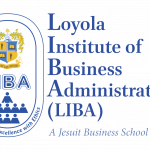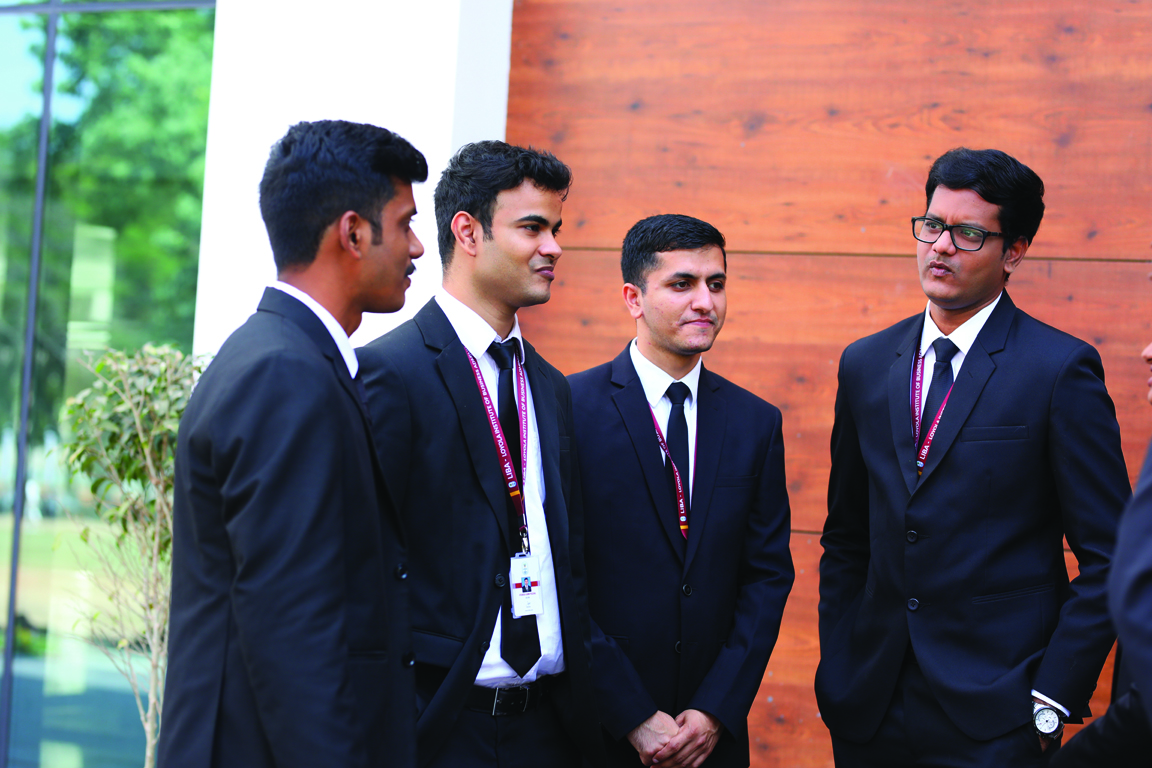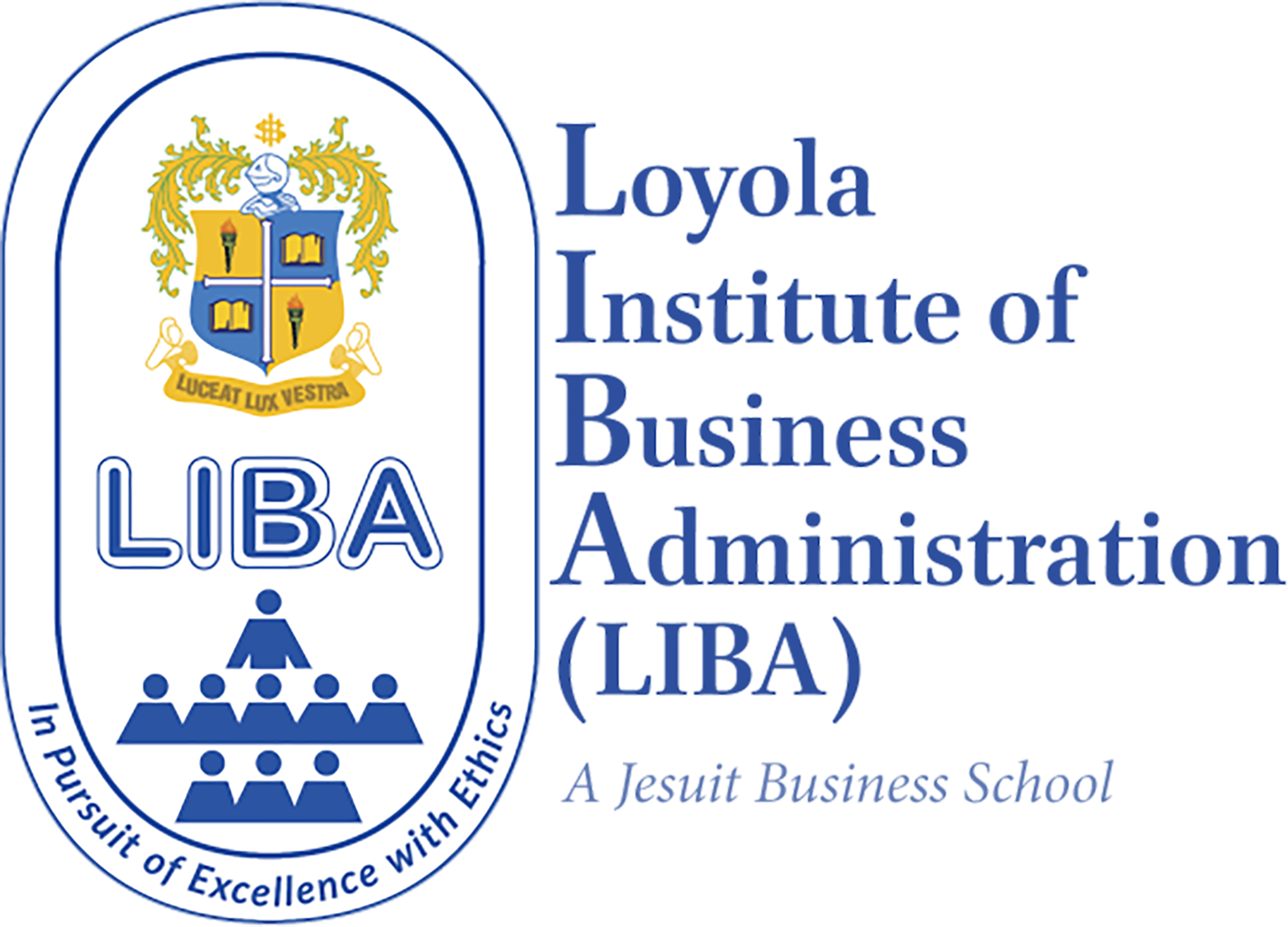FULL-TIME PGDM PROGRAMME
LIBA’s new curriculum emphasizes students’ transformation over two years of learning, focusing on self-awareness, desires, and co-academic growth. Assessments are tailored to individual strengths, employing case studies and field courses, with 120 credits needed for PGDM qualification. Technology, marketing, finance, and operations are also integrated into the program.
Program Duration
24 Months
Language
English
Approved by
AICTE
Placement offered
Yes
This new curriculum is based on the principle of what we intend students to become after two years of learning, both in academic and co-academic realms. Becoming is the focus, not merely knowing ideas and concepts. To become a person, one needs to know what she/he is at present – being. Understanding of the state of being at present and desire to become something else are the two elements of learning and formation at LIBA.
First, a student is asked to identify the gap in the learning process. There is a gap between what one is and what she/he desires to become. This gap is identified by discernment in which the student becomes aware of inner motivations, movements and intentions and recognize efficiencies and deficiencies. For this, the student will be exposed to different activities and experiences to discern his/her future, what she/he wants to become and how that becoming would contribute to his/her own life and to the wellbeing of the society. Second, once she/he comes to a grip of what she/he is and what she/he intends to become, learning is structured and planned in terms of choosing an approach to learning, evolving the foundations of learning and designing a framework for Teaching-Learning-Assessment (TLA). The foundational Philosophy is to understand and learn about the ‘hungers’ and ‘desires’ of the learners and develop a curriculum for an integrated development of the person as a whole. The core of the entire management education lies in gaining a great clarity about what and how an institute like LIBA intends to help and guide the students to become different and make a difference in the lives of people in the society. All starts from what the consumers want and need that directs the kind of products and services to be produced and developed. These products and services have to be marketed and sold to satisfy the consumers (Marketing). Students have to understand the markets and develop selling skills to bring value and returns to the consumers (Finance). Supply chain and operations to reach the products and services should be understood by the students (Operations) and they should be accompanied in their learning of the role logistics and supply chain plays in the entire process. More than ever now, technology and analytics enhances the competitiveness of the business enterprises. Today technology, particularly Artificial Intelligence (AI), Machine Learning (ML), Blockchain (BC), and other related areas must be introduced to the students. In LIBA, students do not write conventional exams. There are no mid-term or end term exams. We assess the learning by using the strengths of the students: “Singers must be tested on singing, and dancers must be tested on dancing.” Instead, there is a Formative Assessment in which every session ends with an assessment of learning.
At the end of term, there is Summative Assessment in which each student is asked to satisfy examiners with their knowledge of basic concepts and application of the concepts in real time situations. If a student’s core competence and skill is oral communication, he or she is tested predominantly on oral tests. Similarly, every student chooses his/her way by which learning is demonstrated and assessed by examiners. Case study method forms the core of the ecosystem of learning and assessment in LIBA. There are filed courses in which the students are able to apply their knowledge. A student needs to acquire a minimum of 120 credits to qualify for PGDM
CREDITS
- Total no. of credits in the first year: 62 credits (4 + 17 + 17 +18 + 6) – CORE
- The student will have to do another 13 credits (CORE) across the three terms including a field course in Second year (3 + 3 + 3 + 4)
- The total Core component in the Programme: 75 Credits (4 + 17 + 17 + 18 + 6 + 9 + 4)
- Out of 120 credits; Electives comprises of 45 credits i.e., 120 – 75
- There are five specializations: Marketing, Finance, Human Resource, Technology & Operations, and Business Analytics
- The students are strongly advised to go for Dual Specialization
- Minimum required credits to specialize in an area are 15 credits
- Generally, students should do electives comprising of 15 credits in a term
- Additionally, one paid credit course is allowed per term (Rs. 2,000/-)
- Basic Financial Accounting
- Computer Applications
- Communication- I
- Managerial Economics
- Marketing Management I
- Organisational Dynamics
- Quantitative Techniques I
- Ethics – I
- Economic Environment of Business
- Financial Management I
- Government, Social and Business Environment
- Marketing Management II
- Managing Operations
- Organizational Behaviour – I
- Quantitative Techniques II
- Communication – II
- Cost and Management Accounting
- Financial Management II
- Human Resource Management
- Management Information Systems
- Ethics – II
- Organisational Behaviour II
- Research Methodology
- Legal Environment of Business
- Summer Project

LIBA
CAT 2021 or XAT 2022 is a prerequisite to apply for LIBA’s PGDM programme. However, the student should fulfil the below eligibility criteria.
1. The candidate should be a graduate in any discipline from a recognised university (AIU) under regular mode ONLY.
2. The candidate should have a consistent higher academic performance at first class level (minimum 60% marks) in STD X, STD XII & Graduation.
3. The candidates who have cleared all the subjects in their first attempt will be preferred. Candidates with a history of more than two arrears are asked NOT to apply.
1. Candidates who have applied to LIBA will be shortlisted based on their CAT 2021/ XAT 2022 scores only. Shortlisted candidates will be called for a Group Discussion (GD) and a Personal Interview (PI) for final selection.
2. GD/PI will be held at Bangalore, Chennai, Kolkata, Hyderabad, Mumbai, New Delhi. Depending upon the prevalent conditions the GD/PI may be conducted in online mode.
Similar Courses

ONLINE PGDM PROGRAMME

